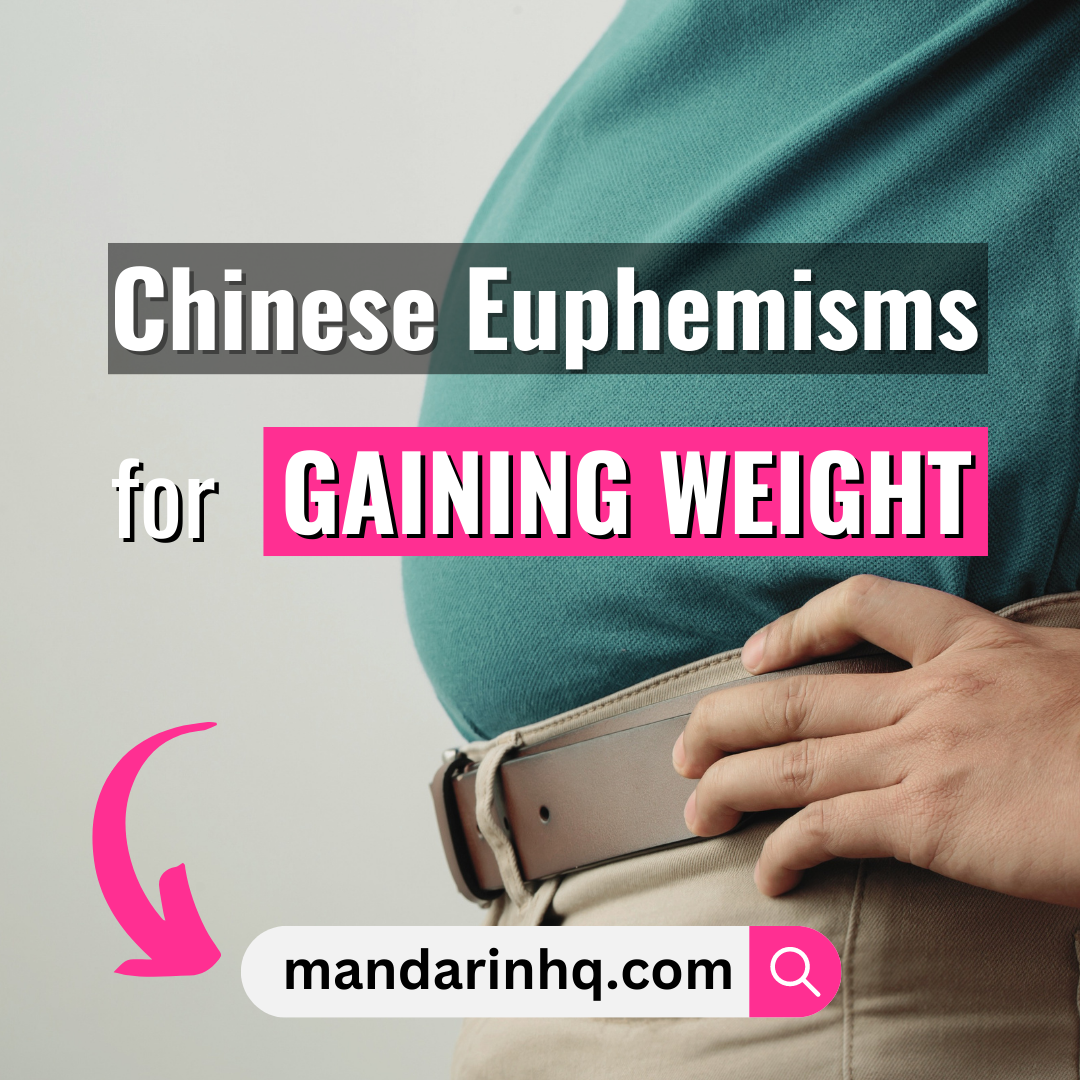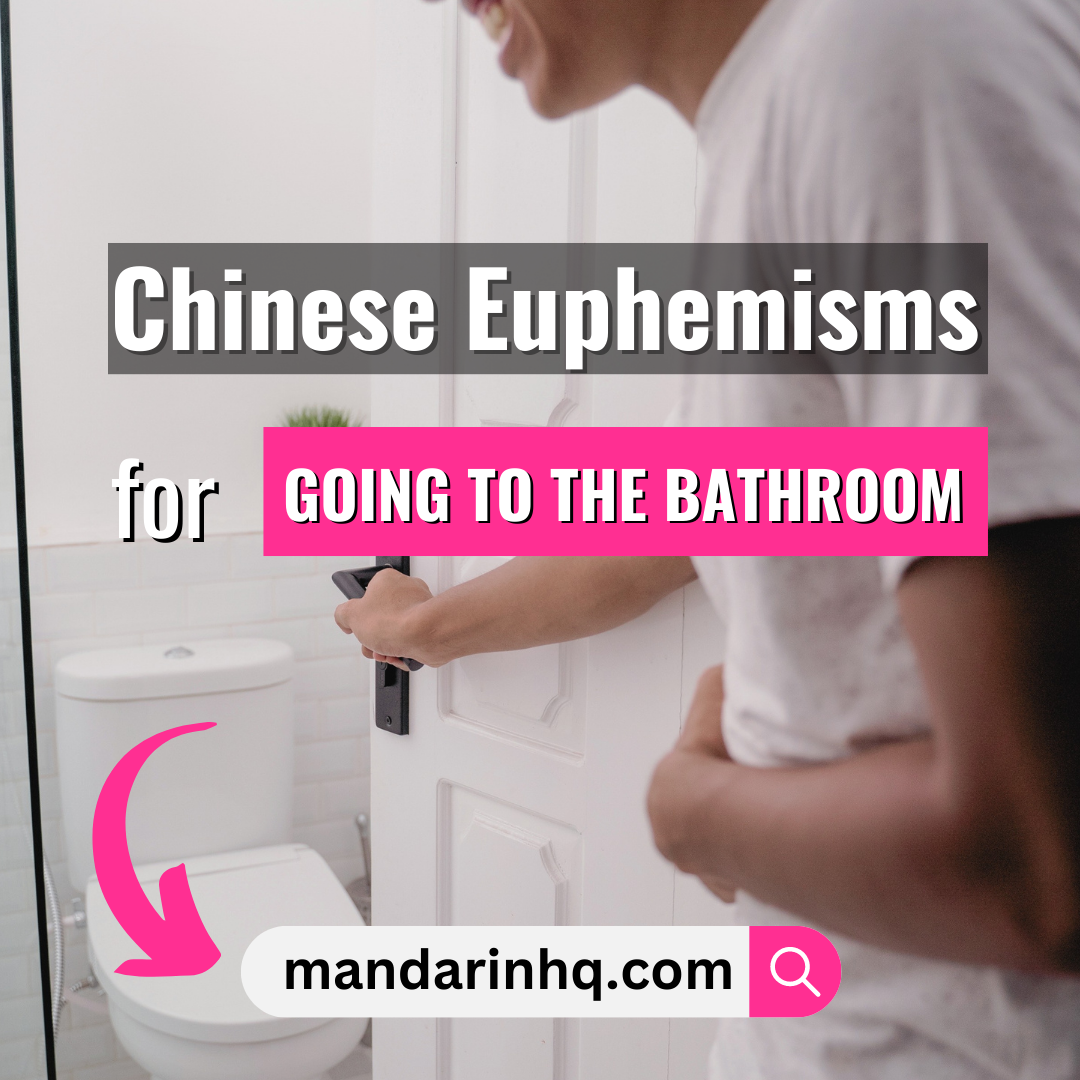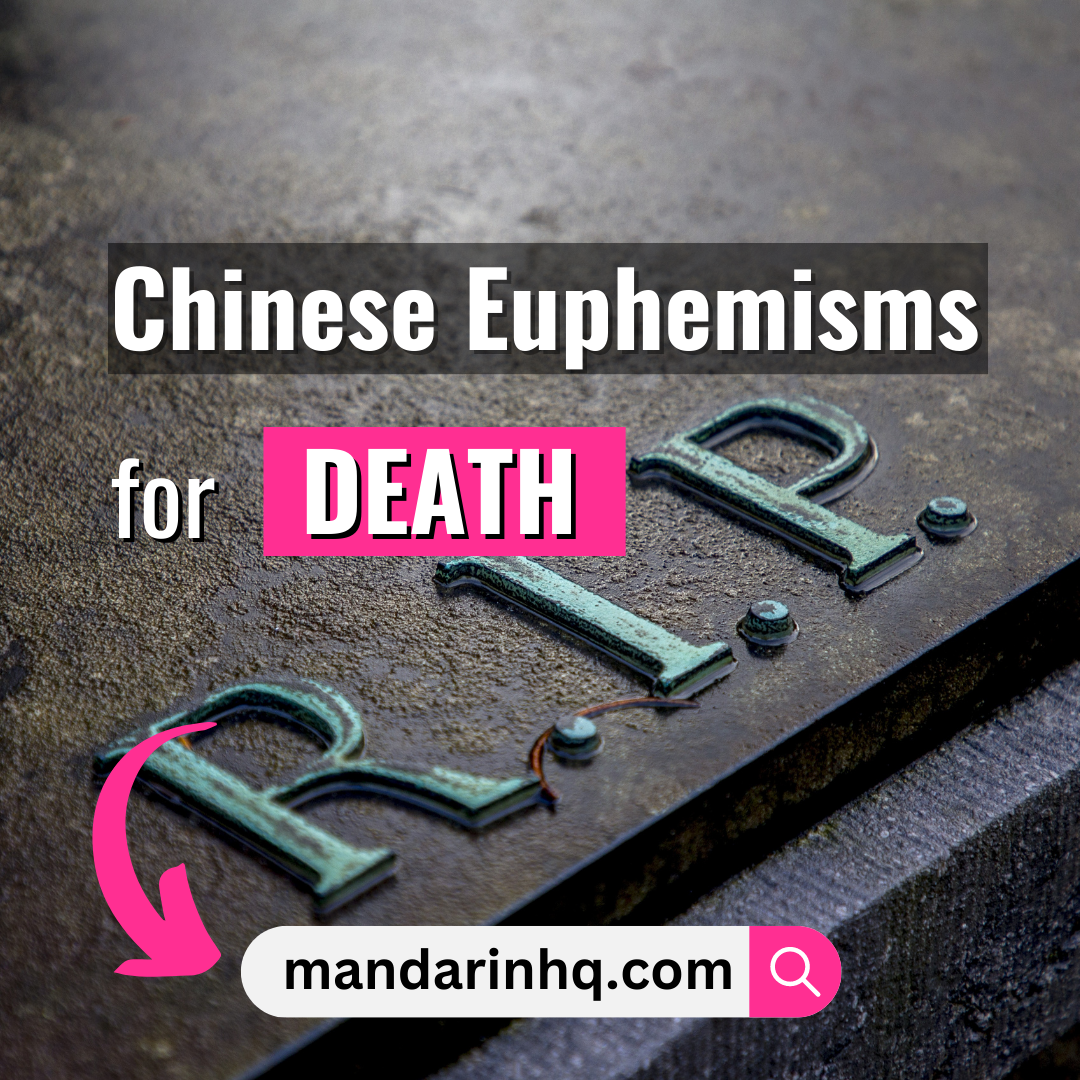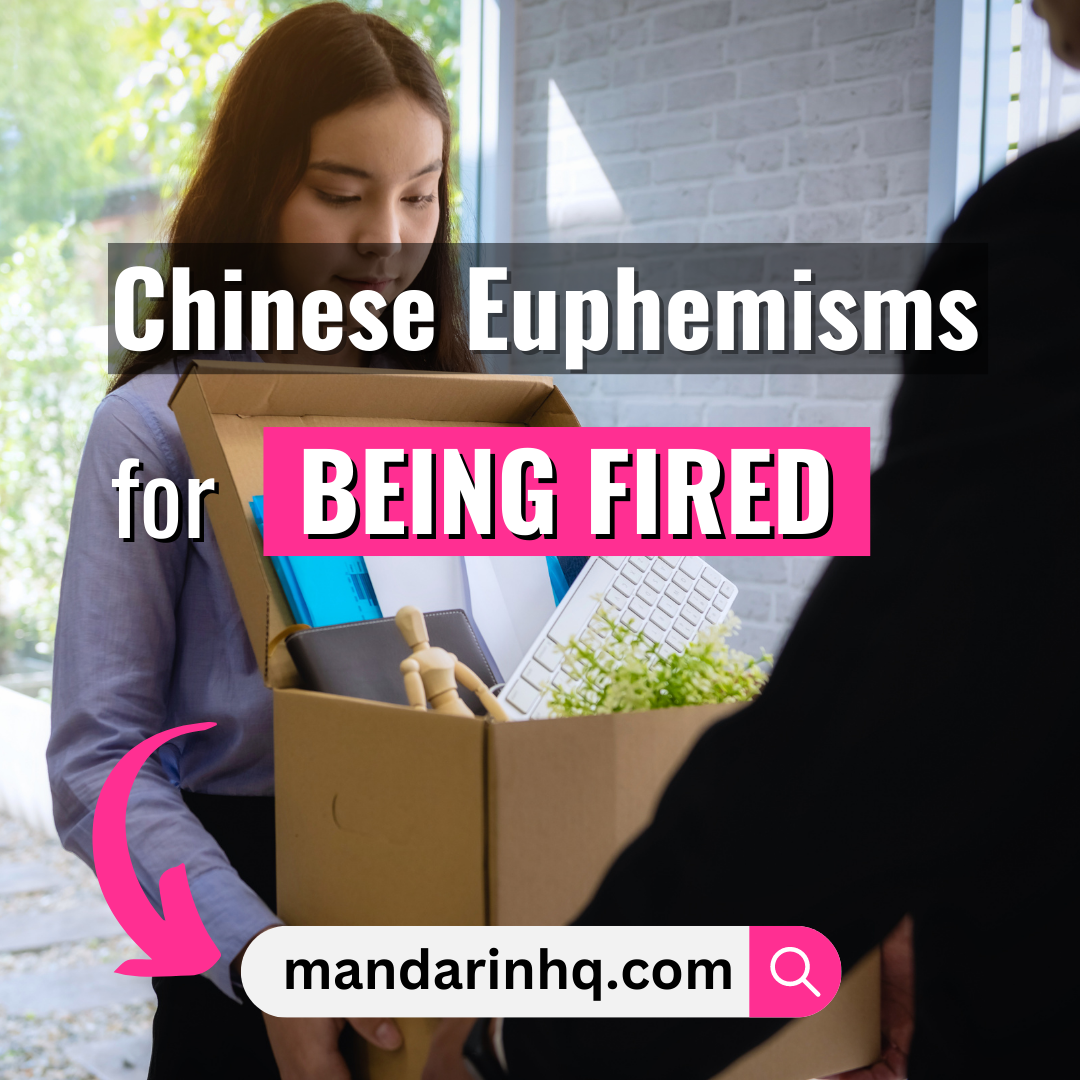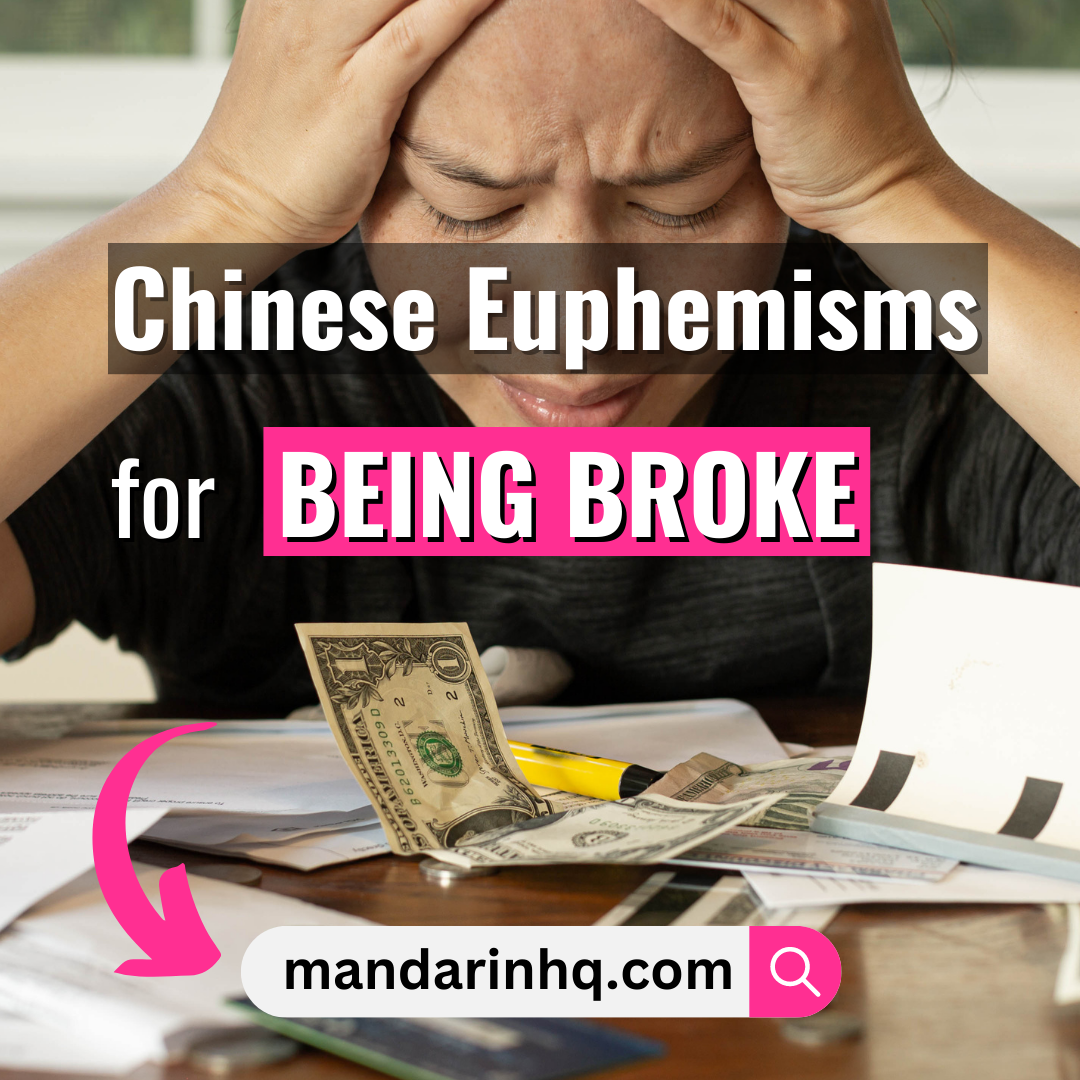If there' something you want to say in Chinese but it feels a bit too direct or embarrassing, use a euphemism instead!
Not only are these expressions more polite, pleasant and fun to say... but Chinese speakers also use them all the time.
Hidden Meanings: Uncover 14 Popular Chinese Euphemisms
长胖 (zhǎng pàng) - Gaining weight: Instead of directly saying someone has gained weight 长胖 (zhǎng pàng), you can use these euphemisms:
1.发福 (fā fú)
The Chinese word "发福" (fā fú) is a euphemism that refers to becoming “more prosperous” in appearance. It is often used in a positive or neutral context to describe someone who has put on weight, suggesting that they are enjoying a good life. The word is composed of two characters: "发" (fā), which means "to develop" or "to grow," and "福" (fú), which means "fortune" or "happiness." Together, they imply that the person's weight gain is a sign of prosperity and well-being.
2. 丰满 (fēngmǎn)
丰满 (fēngmǎn) is a Chinese adjective that describes someone or something as plump, full-figured, or well-rounded. It can be used in a more positive and polite way to refer to a person's body shape, especially when discussing weight gain or body size.
3. 圆润 (yuánrùn)
圆润 (yuánrùn) literally translates to "rounded," which describes the rounder shape of a person's body in a less-offensive manner. This is similar to the English expression "roly-poly."
Let's look at some example sentences:
他最近发福了,看起来更健康了。 (Tā zuìjìn fāfú le, kàn qǐlái gèng jiànkāng le.) - He has recently gained weight, looking healthier.
她的身材丰满,非常吸引人。 (Tā de shēncái fēngmǎn, fēicháng xīyǐnrén.) - Her full-figured body is very attractive.
小李最近吃多了,他变得圆润多了。
Xiǎo Lǐ zuìjìn chī duō le, tā biàn de yuánrùn duō le. - Recently, Xiao Li has been eating more, and he has become much rounder.
上厕所 (shàng cèsuǒ) - Going to the Bathroom:
A more polite way to say "going to the bathroom" is 方便一下 (fāngbiàn yīxià). This is often used in social situations to excuse oneself without explicitly mentioning the bathroom. The phrase is composed of two parts: "方便" (fāngbiàn), which means "convenient" or "to make things easier," and "一下" (yīxià), an expression that softens the tone and implies a brief action. Together, the phrase can be translated as "to make things convenient for a moment" or "to take a quick break."
Bù hǎoyìsi, wǒ yào qù fāngbiàn yīxià.
不好意思,我要去方便一下。
Excuse me, I need to use the bathroom for a moment.
The Chinese word "解手" (jiě shǒu) is a colloquial way to describe the act of going to the toilet. The phrase is composed of two characters: "解" (jiě), which means "to untie" or "to solve," and "手" (shǒu), which means "hand." Together, they create a metaphorical expression that implies the act of untying one's hands, symbolizing the relief experienced after using the bathroom.
Tā píjiǔ hē duōle, tā qù jiěshǒu le.
他啤酒喝多了,他去解手了。
He drank too much beer, so he went to the bathroom.
死 (sǐ) - Death: Talking about death can be sensitive, so instead of using the direct word 死 (sǐ), you can use these euphemisms:
1. 走了 (zǒu le)
走了 (zǒu le) is a euphemism for death in Chinese, which literally means "left" or "gone." It is a more gentle way to express that someone has passed away.
2. 不在了 (bú zài le)
不在了 (bú zài le) is another euphemism for death, which literally means "not here anymore" or "no longer present." It is also a polite and indirect way to convey that someone has died.
3. 去世 (qù shì)
去世 (qù shì) is a formal and polite way to express that someone has passed away in Chinese. It literally means "to leave the world" or "departed from this life." This term is used in more formal settings or when speaking about someone's death with respect and reverence.
Here are some example sentences:
Tā shàng gè yuè zǒu le.
他上个月走了。
He passed away last month.
Děng tā huí guó shí, tā de yéye yǐjīng bú zài le.
等他回国时,他的爷爷已经不在了。
By the time he returned to his country, his grandfather had already passed away.
Tā de wài pó yīn chēhuò qù shì le.
他的外婆因车祸去世了。
His grandmother passed away due to a car accident.
解雇 (jiěgù) - Being fired:
In Chinese, there are several euphemisms for 解雇 (jiě gù), which means "to dismiss" or "to fire" someone from their job. Some common euphemisms include:
1. 炒了 (chǎo le) is a colloquial expression that means "to be fired" or "to be dismissed". It is a more casual way to describe someone's termination from their position.
2. 炒鱿鱼 (chǎo yóu yú) is another informal expression with a similar meaning, which literally translates to "fried squid." It’s used metaphorically to describe someone who has been fired or let go from their job.
3. 辞去 ( cí qù) - Means "to resign" or "to quit". This suggests that the person who got fired left the job voluntarily.
Let's look at some example sentences:
他昨天被公司炒了 (Tā zuótiān bèi gōngsī chǎo le) - He was fired by the company yesterday.
小王因为工作不认真,被老板炒鱿鱼了 (Xiǎo Wáng yīnwèi gōngzuò bù rènzhēn, bèi lǎobǎn chǎo yóu yú le) - Xiao Wang was fired by the boss for not being serious about his work.
Tā yīnwèi chángcháng chí dào, bèi jīnglǐ cí qù le.
他因为常常迟到,被经理辞去了。
He was often late, so the manager fired him.
没钱 (méi qián) - Being broke: Instead of saying someone is broke, you can use these common euphemisms:
1. 口袋空空 (kǒu dài kōng kōng) refers to having empty pockets, implying a lack of money or financial resources.
2. 手头紧 (shǒu tóu jǐn) means being tight on money or having limited funds at the moment.
3. 经济拮据 (jīngjì jié jū) describes a financially strained situation, where one is struggling to make ends meet due to limited finances.
Here are some example sentences:
他失业后,口袋空空,生活变得很艰难 (Tā shīyè hòu, kǒudài kōngkōng, shēnghuó biàn dé hěn jiānnán) - After losing his job, his pockets were empty, and life became very difficult.
最近手头紧,我不得不省吃俭用 (Zuìjìn shǒutóu jǐn, wǒ bùdébù shěng chī jiǎn yòng) - Recently, money has been tight, so I have to cut back on spending.
由于经济拮据,他们不得不取消度假计划 (Yóuyú jīngjì jiéjú, tāmen bùdébù qǔxiāo dùjià jìhuà) - Due to financial difficulties, they had to cancel their vacation plans.
Alright, now you know some Chinese euphemisms to soften the tone in delicate situations. Remember, using euphemisms can help you navigate sensitive topics more gracefully.
好了,我是Angel. 我们下次见!
You might also find these posts interesting:


